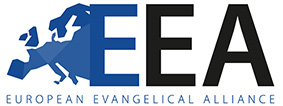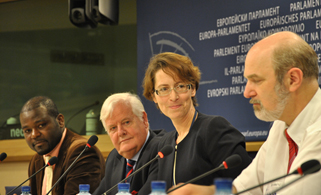When talking with Christians about the state of the church in Europe I often detect the underlying expectation and longing that things should go back to what we call Christendom. A time where the institutionalised Christian faith set the parameters for all areas of life. A time when the power was in the hands of “the Christians”. But, was that time really a good time as we consider its fruits? Much was good but when I look at today’s world, at its reactions against those times, I see its downsides as well.
The private faith
There was a time when there was an expectation that my faith would affect all areas of life and society. The Christian worldview was prevalent in Europe and beyond. It was a public faith.
Today the expectation is that faith is a private matter. And this has many implications. If faith is private, I should not disturb my neighbour with my views. If faith is private, I should not have any expectations that it should shape any area of society. In fact, I should be quiet about my beliefs. If faith is private, I should not connect it with science. If faith is private … Because of this understanding, many Christians have a hard time speaking about their faith and connecting it to their area of work and influence. There is the unspoken expectation that we should be quiet, and it takes courage and wisdom to speak up against this. Is it then so surprising that in many European countries the Christian worldview has vanished or is vanishing? Is it surprising that many Christians treat their faith as a private matter, and therefore has little influence in the public square?
The reality is that Christian faith and associated values have now been replaced by other worldviews.
Where things went wrong
Jeremiah 29,7 is often quoted: “Also, seek the peace and prosperity of the city to which I have carried you into exile. Pray to the Lord for it, because if it prospers, you too will prosper.” Our situation is compared with the Jews in Babylon. And one can derive from this that we are called to get involved in all aspects of life in “our city”. We are called to do this in a prayerful way not in our own strength. We are called to serve and seek the best for the city, not the best for ourselves. If the city prospers, we will as well. We are not called to look for power but to look to God to change things for the better. And we should be involved in all aspects of the city’s life.
Christendom took over the city and that’s probably where things went wrong. Instead of serving Christendom ruled. Power has the potential to corrupt and it often did. That’s one aspect of a far more complex story of why we have a ban of religion in the public square these days.
Unlocking expectations
Fortunately, this is not the end. I believe that Jeremiah’s call to get involved by prayer and work for the city’s wellbeing is still valid. And I am hopeful. There are many Christians who have great expectations and hopes who are involved in all spheres of society, and make the Christian voice heard in the public square.
Are our lives reflecting the belief and understanding that God is still the same, that he will bring peace and prosperity to our world when we pray and get involved? Our Church calendar provides us with reminders of the Hope that we have been given. So, as the Advent (Arrival) season has just started we remember together that God has come in Jesus and he has not left us without hope! A blessed Advent to you!
 Thomas Bucher
Thomas Bucher
General Secretary EEA
PS The Hope Event taking place 4-8 October 2022 is addressing the matters above:
“Builders connected – Celebrating the Kingdom of God”
Connected in Proclamation Connected in Social Work Connected in speaking up
Find the articles of the newsletter here:
- Unlocking Expectations: Collaborative Peacebuilding with Neighbors (An Interview with Bryan Carey, Peace Catalyst International)
- Reflections on COP26 (By Kuki Rokhum, Leadership Team of Renew our World and the Evangelical Fellowship of India Comission of Relief)
- Changing Church – Climate Change (New Resources from the Evangelical Alliance in the UK)
- The Joseph Principle (By Avi Snyder, European Ambassador, Jews for Jesus)
- Faithful Service Amid Fear and Uncertainty (By Alfinda Herman, Roma Network/Wycliffe Bible Translators)
- The Christmas Gift for People Living with Dementia (By Louise Morse, Pilgrims’ Friend Society, a sister charity of the Faith in Later Life Network)
- Exciting News about the Hope for Europe Conference 2022
- Looking back on the Balkan Meeting in Thessaloniki on Shalom & Shalom-Building (By Bryan Carey, Peace Catalyst International)
- Week Of Prayer Material for 2022 is now available on YouVersion!







